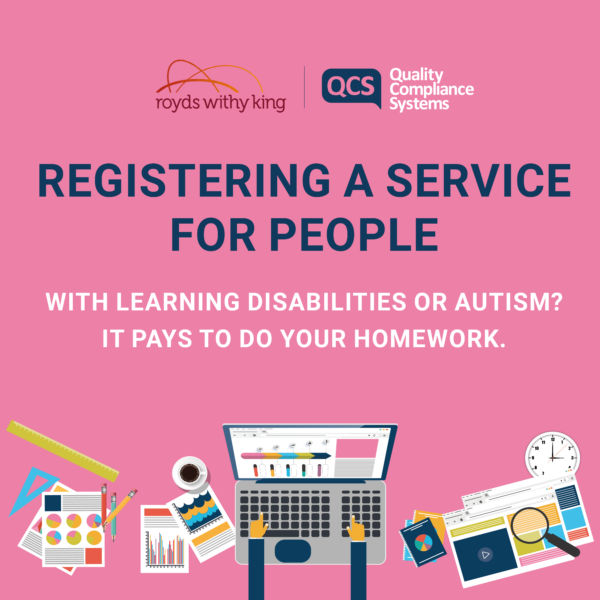If you are planning to register a new service for people with learning disabilities or autism, what do you need to consider? Download our factsheet here.
Download Now
Alternatively, you can read the article here:
It is becoming harder to register a new service for people with learning difficulties or autism. There has been a recent spate of rejections by CQC.
It is not clear why this is happening but what is clear is that anything even slightly outside the parameters of the applicable guidance is being rejected, normally on the grounds that it does not comply with one of the Health and Social Care Act 2008
(Regulated Activities) Regulations 2014:
1. Regulation 15 (premises and equipment);
2. Regulation 9 (person-centred care); and
3. Regulation 10 (dignity and respect).
Even supported living services are being rejected. They cannot be rejected under Regulation 15 because their premises are not regulated. However, they are being rejected on Regulation 15 type grounds on the basis that such locations will not foster person-centred care under Regulation 9 or will not support people to become more independent or live with dignity under Regulation 10. The regulatory acrobatics that registration inspectors undertake to reject such applications are surprising but exactly what distinguishes supported living from a care home has always been tenuous in practical terms.
If you are planning to register a new service, what do you need to consider?
First, there is new draft guidance pending, entitled “Right Support, Right Care, Right Culture”. There was a brief consultation about this in early 2020. When the country went into lockdown, it was put on the back burner but in July, CQC started talking about it again.
If you are preparing a new application, you should read this draft guidance and its case studies to make yourself aware of the general direction of travel. Although not yet in force, it would be wise to try to ensure that any new application complies with it.
Links to this guidance and its case studies are here:
Right support, right care, right culture: draft guidance
Right support, right care, right culture: case studies
Second, any new application will need persuasive evidence to demonstrate that the proposed service will comply with the current guidance, “Registering the Right Support” and “Building the Right Support”. You should obtain strong evidence of client, family and commissioner support. You must demonstrate that the service will support the local population, that people are enthusiastic about living there, and that commissioners see a strong need for it.
Lastly, if your client group has unusual or significant needs, you will need to explain how the proposed service will support them to live as others (without disabilities) do. It will be particularly important to demonstrate how they will be supported to engage in a meaningful way with their community. CQC can sometimes have a very narrow idea of what community engagement means (usually, walking to the shops). Although this does not fit with many people’s idea of community engagement, it seems to be the yardstick against which most applications are measured. If popping to the shops is not possible for your clients then you will need to demonstrate how you will support people to be actively involved in their community.
In sum, making an application to register a new service can be harder than expected. Putting in the effort at the front end may save you the hassle and delay that comes with rejection
For advice on Registering a service for people with learning disabilities or autism, please get in touch with Mei-Ling Huang, Partner in the Health & Social Care team at Royds Withy King






